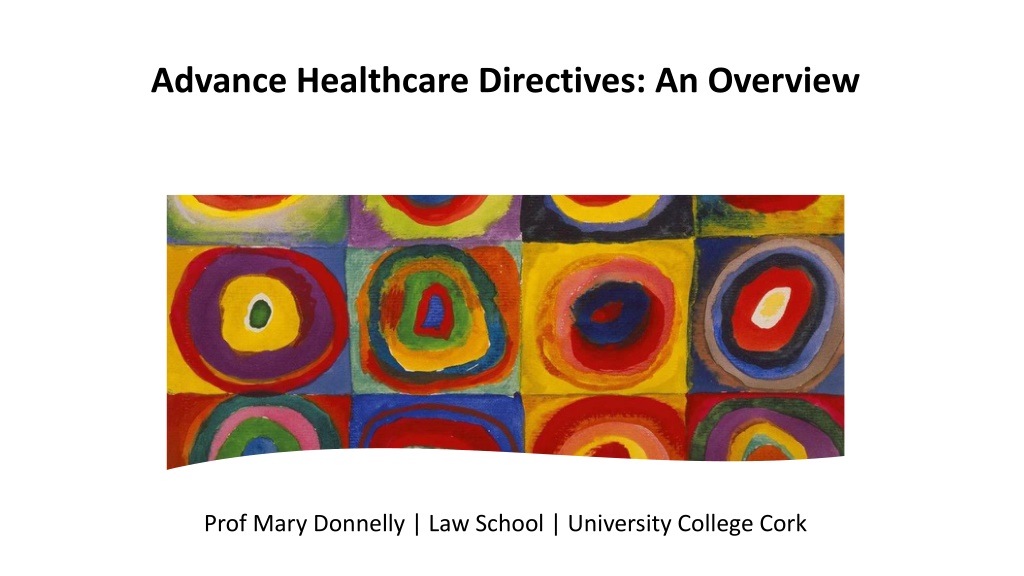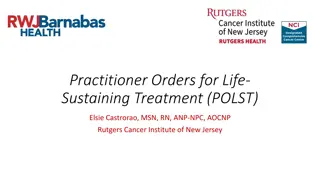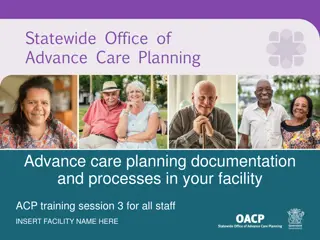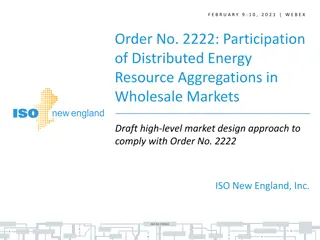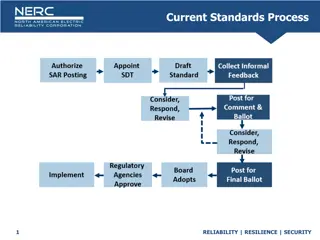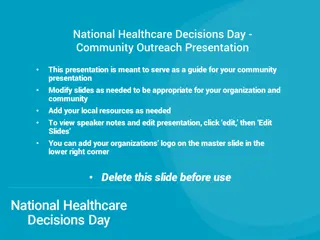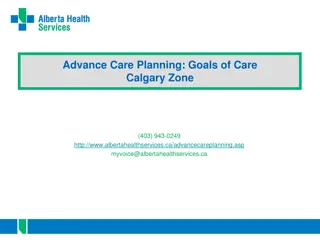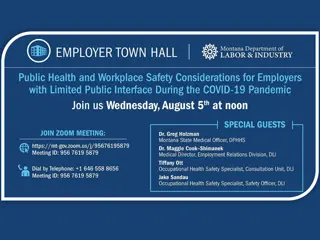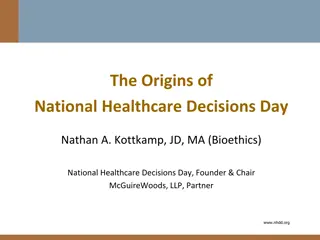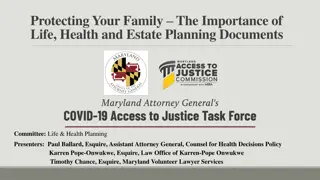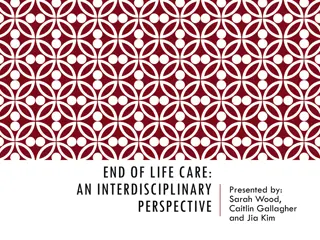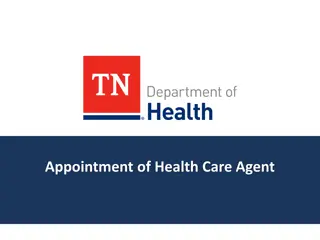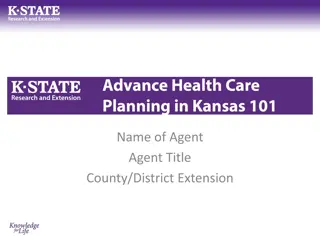Advance Healthcare Directives: An Overview
Advance Healthcare Directives (AHDs) are legally enforceable healthcare decisions made in advance to guide treatment choices in case of incapacity. Originating in specific communities, AHDs are now recognized widely, including in Irish law under the Assisted Decision-Making (Capacity) Act 2015. This overview delves into the legal framework, importance, and requirements for creating AHDs, emphasizing the need for clarity and adherence to statutory guidelines in ensuring patient autonomy and appropriate medical care decisions.
Download Presentation

Please find below an Image/Link to download the presentation.
The content on the website is provided AS IS for your information and personal use only. It may not be sold, licensed, or shared on other websites without obtaining consent from the author.If you encounter any issues during the download, it is possible that the publisher has removed the file from their server.
You are allowed to download the files provided on this website for personal or commercial use, subject to the condition that they are used lawfully. All files are the property of their respective owners.
The content on the website is provided AS IS for your information and personal use only. It may not be sold, licensed, or shared on other websites without obtaining consent from the author.
E N D
Presentation Transcript
Advance Healthcare Directives: An Overview Prof Mary Donnelly | Law School | University College Cork
Background A legally enforceable decision about healthcare made in advance which will remain enforceable in the event of loss of capacity Origins in Jehovah s Witness communities Grounded in right to refuse treatment Set out in statute in most countries Typically used in end-of-life care Increasingly popular in mental health
AHDs in (Pre-ADMCA) Law and Medical Ethics Contemporaneous and advance right to refuse treatment affirmed by Irish Courts (although no detailed judicial treatment of advance refusal) AHDs recognised by Medical Council Guide to Professional Conduct and Ethics (8th Ed), para. 16 You should do your best to help and support patients who ask assistance in writing an advance healthcare plan You should ask patients with life limiting conditions if they have made an advance healthcare plan An advance healthcare plan/directive has the same status as contemporaneous decision provided: informed choice; covers situations; nothing indicates patient has change mind No obligation to provide treatment not clinically indicated If questions arise re status of AHD, act in patient s best interests
AHDs in the Assisted Decision-Making (Capacity) Act 2015 as amended What is an AHD? An advance expression made by the person of his or her will and preferences concerning treatment decisions that may arise in respect of him or her if he or she subsequently lacks capacity What is treatment? An intervention which has a therapeutic purpose a preventative purpose a diagnostic purpose a palliative purpose Refusal or request Appointment of Designated Healthcare Representative Note: only legal mechanism to make advance treatment decisions cannot make an Enduring Power of Attorney on treatment
Requirements for an AHD Directive-maker must: Be aged more than 18 years Have decision-making capacity No statutory requirement for formal assessment Can be supported by Decision-Making Assistant (but not Co-Decision-Maker) AHD must be in writing Must be signed by Directive-maker and Designated Healthcare Representative (if one) Must include Name, Date of Birth and Contact details of Directive-maker and DHR Must be witnessed 2 witnesses One witness must not be an immediate family member Must contain express statement re life-saving/sustaining treatment if to apply
Requests for Treatment Not legally binding But Must be taken into consideration in deciding most appropriate treatment (if relevant to the condition) Reasons for not complying must be provided to DHR (within 7 days)
Refusal of Treatment Legally binding if valid and applicable This requires that : AHD is voluntarily made Directive-maker has not have done anything inconsistent while s/he has capacity Directive-maker lacks capacity at the time the treatment decision is to be made Treatment must be materially the same as AHD Circumstances must be materially the same as AHD If life-sustaining treatment, AHD must be specifically stated to apply
Exceptions to Right to Refuse Treatment Treatment for a Mental Disorder under MHA Basic Care AHD may not refuse basic care AHD refusing treatment for a mental disorder does not apply where directive-maker has been admitted under s. 3(1)(a) of Mental Health Act 2001 (risk to self and/or others) Includes (but is not limited to) warmth, shelter, food and liquids provided orally, and hygiene measures AHD refusing treatment for a physical condition continues to apply Does not include artificial nutrition and hydration
Designated Healthcare Representative Power to ensure conditions of AHD complied with Can be empowered to: Advise/interpret D-M s will and preferences in accordance with AHD Consent to/refuse treatment: can include life- sustaining treatment if expressly empowered
Resolving Ambiguity Healthcare professional must: Consult with DHR, if there is one If no DHR Consult with DM s family and friends Seek the opinion of a second healthcare professional If still unresolved, must resolve in favour of preservation of Directive-Maker s life
Statutory Protection from Liability No liability where HCP did not act in compliance with refusal of treatment in AHD where: No liability where: HCP complies with a refusal of treatment in AHD and had reasonable ground to believe and did believe - that AHD was valid and applicable s/he at that time had no grounds to believe an AHD existed s/he had grounds to believe that an AHD existed but had: HCP does not comply with a refusal of treatment in AHD and has reasonable ground to believe and did believe - that AHD was not valid and applicable No immediate access to the AHD and its contents and The urgency of the medical condition was such that HCP could not reasonably delay taking appropriate action until s/he did have access
